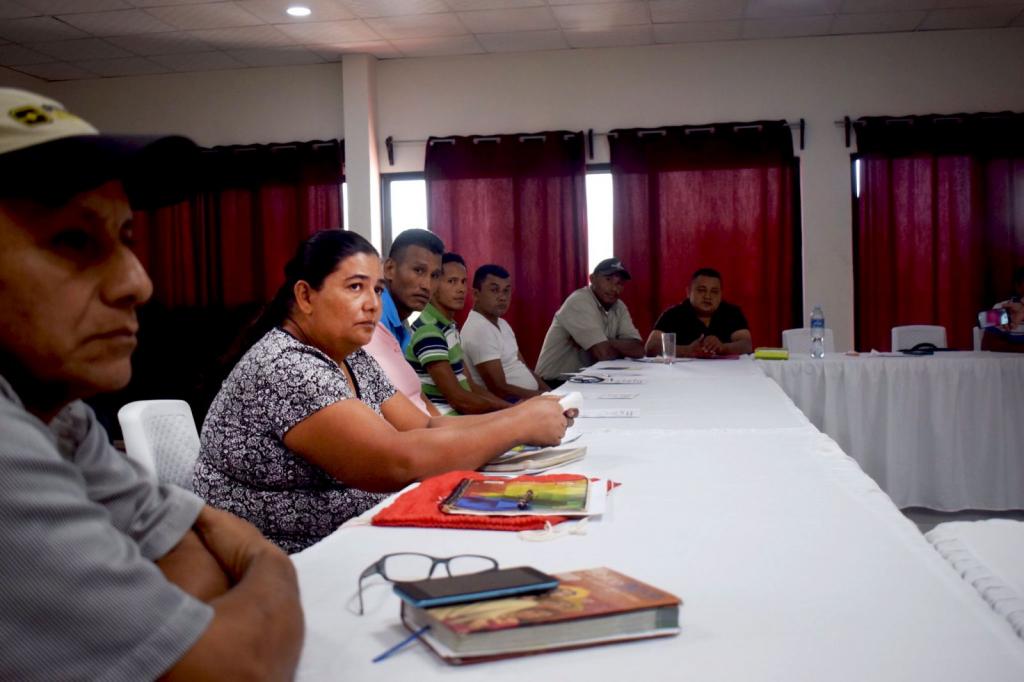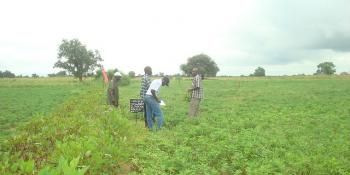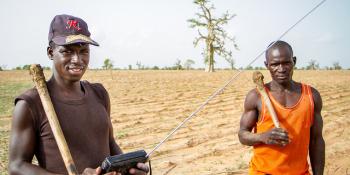Facing climate change in Honduras: The importance of gender equity

Rural women in Honduras take the lead in the use of agro-climatic information for better-informed decisions about their crops.
The women of the municipality of Namasigue, Honduras, have found empowerment in the Local Technical Agroclimatic Committee (LTAC) of the municipality of Choluteca. LTACs allow women to actively participate in the local decision-making processes of rural life. They are a space for dialogue and exchange of knowledge on climate and agriculture between producers and local experts from different participating institutions such as meteorological services, local authorities, academic and scientific centers, among others.
Mrs. Elka, a producer of the municipality, is known within the community because of her active participation in the LTAC from the state of Choluteca. Mrs. Elka is now in charge of sharing her insights from the training she receives with the twenty women and two men who are affiliated to the same rural credit organization that she is.
I share my knowledge with other farmers, I give them the information and the new technologies that we are still learning from the different projects and programs inside our rural organization. This knowledge has contributed to corn production."
Mrs. Elka Marcilla, farmer in Namasigue
The LTAC allows women to share their knowledge with the rest of the community. It also improves the women's ability to use agro-climatic information to make better-informed decisions about their crops. That is why LTACs, according to the recommendations set out in the LTAC implementation guide (CCAFS, 2019), play a key role in the empowerment of rural women and achieving comprehensive development in communities.
The advances achieved in Namasigue are thanks to the scaling efforts of the Municipal Women's Office (WMO), with the support of the CGIAR Research Program on Climate Change, Agriculture and Food Security (CCAFS), led by the International Center for Tropical Agriculture (CIAT).

Mrs. Elka Marcilla participating in Choluteca's LTAC. Photo: A. Valdivia (CIAT)
Women: the backbone of agricultural development
Spaces like Choluteca’s LTAC are a key tool to reduce gender gaps between rural men and women. This is because they not only support the dissemination of information that promotes better decision-making in agriculture systems, but also actively promote the inclusion of women through their participation in discussions on adaptation options in the face of climate change.
Nidia Cruz Reyes, a technician at the gender office of the municipality of Namasigüe, states that spaces where knowledge is shared about climate and agriculture have been a tool that has benefited local producers, who, in the past, tended to suffer a total loss of their crops due to a lack of information.
In the following video you will learn how the Choluteca's LTAC has helped to empower rural women in the agricultural work of the municipality:
The Choluteca’s LTAC, with the integration of women leaders and producers of rural savings funds, is a clear example of how LTACs can contribute to training and capacity building, and the sharing of experiences, tools, and strategies. These skills and information allow women to actively participate in agriculture, empowering them socially and economically.
"I feel that women must have a promotion process, a training process to generate more knowledge and to make them feel that they are important in social, economic and political development within communities and empower them in all their potential,'' concludes Oviedo, a technician of the Municipal Environment Unit.
In order to achieve this, it is necessary to continue with the work and promotion of knowledge exchange spaces, involving local governments and organizations. The participation of women farmers within the committees is important for the promotion of production improvement in rural households.
Read more:
- News updates: Guatemala prepares to strengthen gender integration in its agricultural projects
- News updates: Farmers from CSV Santa Rita work towards their dream farm
- Video: Local Technical Agroclimatic Committees-Putting tailored climate information in the hands of farmers
Arely Valdivia is a Communications Coordinator for CIAT Nicaragua.



